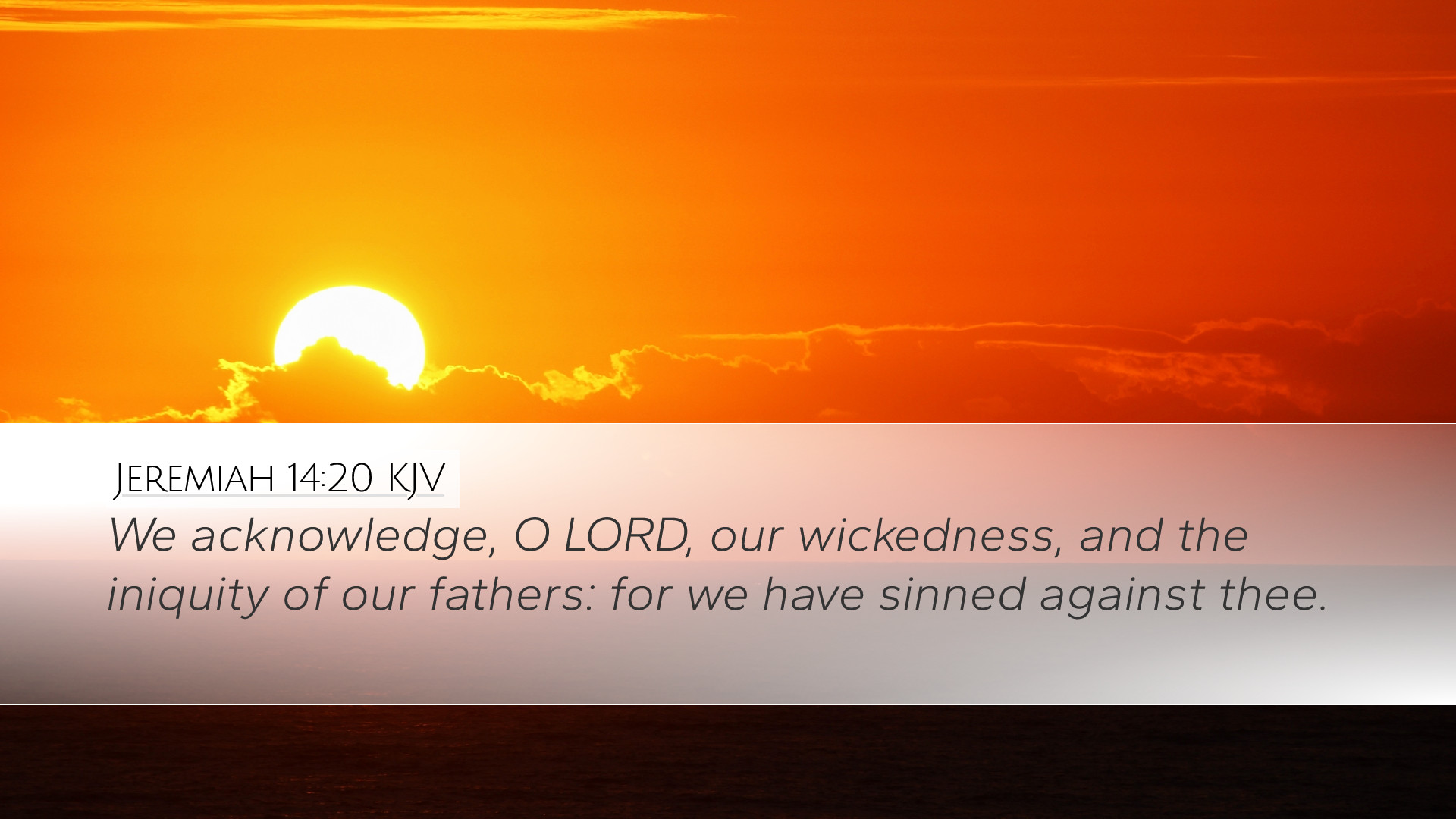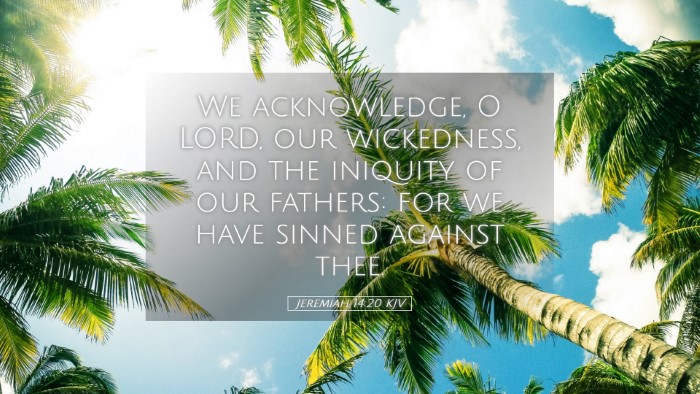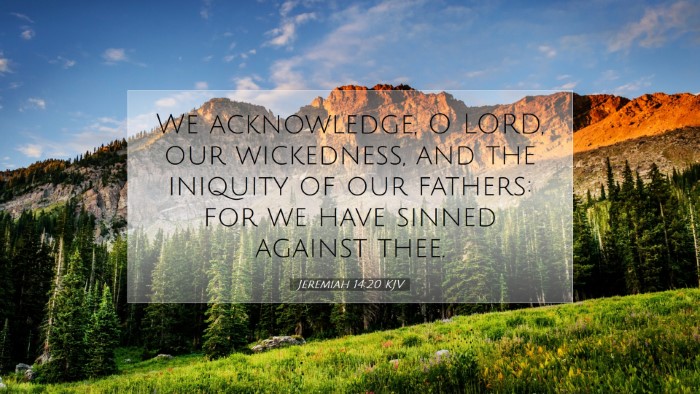Commentary on Jeremiah 14:20
Verse: “We acknowledge, O Lord, our wickedness, and the iniquity of our fathers: for we have sinned against thee.”
Introduction
This verse reflects profound themes of confession, repentance, and recognition of corporate sin. Throughout biblical literature, the act of acknowledging wrongdoing is pivotal for restoration and healing. Here, we explore the insights from notable public domain commentaries, providing depth for pastors, theologians, and students of the Scriptures.
Contextual Background
The Book of Jeremiah is characterized by its lamentation over Israel's sin and the resulting divine judgment. Jeremiah, often called the "weeping prophet," conveys God's messages to a people steeped in idolatry and rebellion. In this particular chapter, the imagery of drought symbolizes spiritual desolation, echoing the consequences of Israel's unfaithfulness.
The Acknowledgment of Sin
This confession initiates a critical dialogue with God and marks a transition from denial to humility. As Matthew Henry notes, “The acknowledgment of sin is the first step toward being healed of it.” The collective "we" signifies not only individual but also communal sinfulness, which emphasizes the shared responsibility of the people before God.
Insights from Commentaries
-
Matthew Henry:
Henry emphasizes the importance of contrition in prayer, noting that true acknowledgment must stem from a sincere heart. He suggests that the phrase "we acknowledge" indicates an understanding that sin is a significant barrier between God and His people, prompting them to seek reconciliation.
-
Albert Barnes:
Barnes highlights the historical context, framing Israel's sins as not solely personal but as inherited from the failure of previous generations. His commentary underscores the necessity of recognizing past iniquities to fully grasp the present need for repentance and renewal.
-
Adam Clarke:
Clarke adds depth by associating the acknowledgment with the concept of a covenant relationship with God. He posits that genuine confession must involve a collective recognition of not only individual failings but also the broader breach of covenant that has persisted over generations.
The Nature of Sin
The verse underlines two categories of sin: the wickedness of individuals and the iniquities of ancestors. This dual acknowledgment serves to remind the community of the pervasive nature of sin that exists both in the present and the past. It is significant for theologians to recognize how Scripture often connects generational sin with communal identity.
Theological Implications
-
Corporate Confession:
This verse serves as a model for corporate confession in worship and community life. It justifies collective prayers wherein the people of God stand together in repentance.
-
The Continuity of Sin:
It provides a theological framework that acknowledges the continuity of sin, indicating that failures in faithfulness affect not just individuals but also communities and future generations.
The Call to Repentance
This acknowledgment acts as a springboard into repentance, which is crucial for both individual and corporate restoration. The prophets consistently call God's people back to genuine repentance as a means of restoring their relationship with Him.
Practical Applications for Ministry
-
Encouraging Confession:
Pastors are encouraged to create safe spaces for congregants to confess sins, both personal and communal, recognizing that vulnerability before God leads to healing.
-
Teaching on Corporate Identity:
The inclusion of corporate identity within sin can serve as an invitation for churches to engage in communal reflections on their history and cultural contexts.
Conclusion
Jeremiah 14:20 serves as a poignant reminder of the necessity of acknowledging sin as a precursor to healing and restoration. The insights drawn from the commentaries of Matthew Henry, Albert Barnes, and Adam Clarke reveal layered meanings surrounding confession, sin, and the path to repentance. It calls for sound theological and practical reflections for the Church, inspiring deeper engagement with God’s redemptive work in our lives as individuals and as a community.


